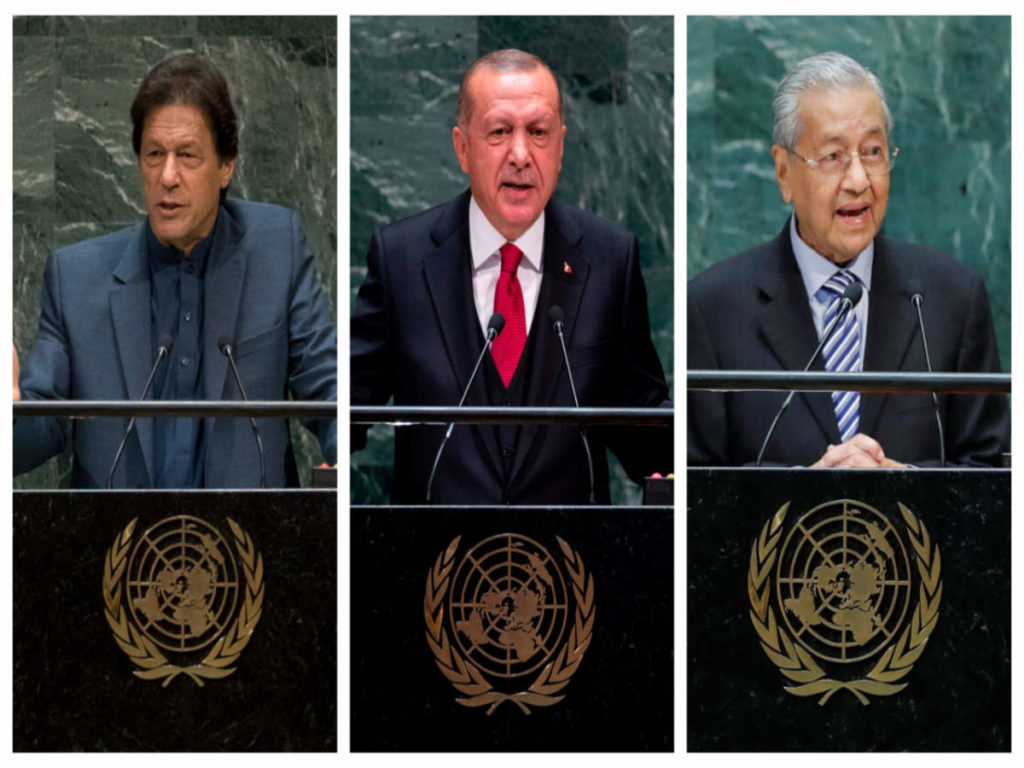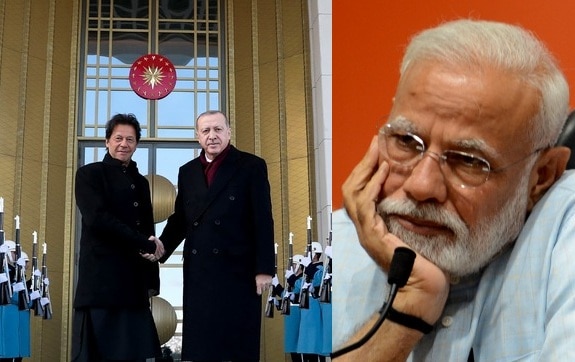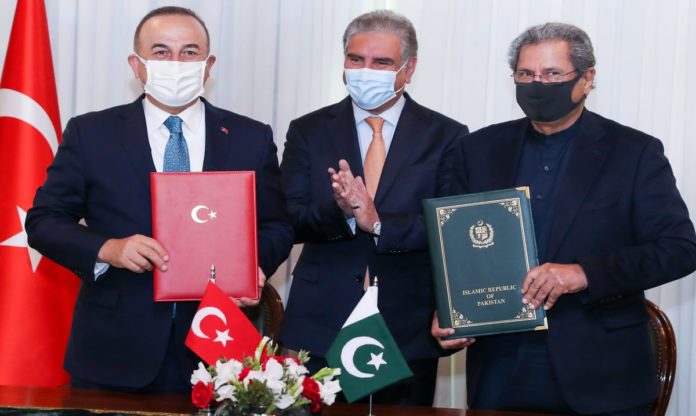The relations between Pakistan and Turkey have been evolved in multidimensional ways, mainly covering the economic, diplomatic, social, and strategic domains. The leaders of both nations are involved in reciprocal visits while agreeing on different common economic goals and maintain a common diplomatic vision for addressing future challenges. The nature of a special relationship is inherited in the common vision of strengthening their diplomatic interaction by connecting their societies. The idea for improving mutual cooperation has resulted in a dual citizenship agreement that has convinced both nations’ leaders to provide a dual national status to their citizens. By constructing a close diplomatic collaboration by providing dual citizenship facility the two governments planned to connect their business communities in economics and trade. A close interaction in financial affairs will let the two business communities avail various investment opportunities under the rubric of bilateral diplomatic cooperation. It will further enable various segments of Turkish and Pakistani societies to explore different trading avenues in the form of formal economic deals between two nations. The two-sided governments are determined to increase their bilateral interaction beyond economic domains because they are willing to maintain multidimensional cooperation in different fields.
The evolving cooperative ties between two countries cannot be marginalized in the presence of evolving Indian relations with Turkey in various fields. The Indian leaders, obsessed with an anti-neighbourhood policy, cannot stay mute on the emerging economic ties between Islamabad and Ankara, due to New Delhi’s unending antipathy towards its nuclear neighbour and Indian leaders are determined to oppose Islamabad in regional and extra-regional affairs. In addition to opposing Pakistan’s standing in the international community, India’s leading foreign policy decision-makers are not willing to accept the increasing role of Islamabad in the Muslim world. Apart from opposing Islamabad’s role in its domestic region, political authorities from New Delhi wish to isolate Pakistan in the international community generally and the Muslim world particularly. The Indian quest for undermining Pakistan’s position among the Muslim countries has propelled its Hindu leadership to cultivate bilaterally cooperative and economically collaborative interaction with the Islamic countries. This Indian policy of cultivating ties is primarily designed to support its Hindu leadership to increase their country’s position in the international community. Still, it is fundamentally designed to disturb its nuclear neighbour in the Muslim world. In this way, the Indian decision-makers are closely monitoring Islamabad’s mainstream foreign relation with the outside world, where the cooperative interaction of Islamabad with the Islamic nations is the gravitational point of Islamabad’s foreign relations and a point of serious concern for New Delhi.

Given the scenario mentioned above, Indian opposition to Pakistan’s increasing cooperative ties with the Muslim countries, and the emerging New Delhi’s relations with the Islamic nations, will become a major challenge for Islamabad. Under this scenario, the evolving bilateral cooperation between Islamabad and Ankara will face a challenge from India in the future which will do its best to disturb Pakistan’s position in Turkey’s foreign relations. A shared vision of common Islamic thoughts and their inseparable association to the Muslim world is the fundamental force in the cooperative framework of Pakistan-Turkey relations. Based on their political aspirations for leading the Muslim world respectfully in the international system, the leaders of both Islamic nations intend to consolidate their potential in world politics by upholding the role of Muslim countries. A collective plan for strengthening their ideological relationship based on solid historical bonds has resulted in various matters of common understanding on the evolving nature of international power politics. The Turkish government has decided to raise the Kashmir issue at various international forums and by emphasizing the significance of the Kashmir issue the Turkish authorities have recognized that a peaceful resolution of the disputed land between two nuclear powers is the key for ensuring the peaceful and stable South Asia. Moreover, Turkey’s support for the suffering of the Kashmiri people validates Ankara’s ambition for playing a leading role in the whole Muslim world across the globe. Ankara’s increasing emphasis on Kashmir has greatly disturbed the Indian leaders because Turkish support to the Muslim suffering under Indian occupied areas of Kashmir is a major support of Islamabad’s stance on Kashmir.
The Turkish voices over the Kashmir issue has rung the alarm bells of and compelled Indian leaders to take serious note of the deepening of bilateral ties between Pakistan and Turkey. Turkey’s open support to Pakistan’s position on Kashmir and the increasing multidimensional cooperation between Pakistani and Turkish authorities have also forced Indian authorities to cultivate a close cooperative bilateral interaction with their Turkish counterparts. The efforts to gain the support of Turkey in the form of diplomatic cooperation, economic collaboration, and political coordination are inherited from the Cold War period when Indian leaders decided to formulate various bilaterally cooperative grounds with the Islamic nations. In this way, the Turkish and Indian leaders laid the foundations of bilateral interaction in diverse areas. The bilateral exchange in the form of a close economic association between both countries resulted in a joint Turkey-India Joint Economic and Technical Cooperation Committee (JEC), which the Economic and Technical Cooperation Agreement concluded in 1978. In 1996, the representatives from both sides established a Business Council that was upgraded parallel to arranging various Joint Committee Meetings to advance bilateral economic collaboration.
The aim of degrading Pakistan in the group of states having common Islamic ideologies led New Delhi further to enhance the scope of its economic cooperation with Turkey. Turkish construction firms remained active increasing their investments in India, e.g. the Lucknow subway construction, the Mumbai subway construction, a railway tunnel construction in Jammu Kashmir and various housing projects. Moreover, both sides signed various agreements for enhancing mutual areas of bilateral collaboration, such as the Avoidance of Double Taxation (1996) and the Agreement on the Mutual Assistance in Customs Matters (2015). In 2015, another agreement for the advancement of business and trade between Ankara and New Delhi attached the Confederation of Indian Industry (CII) with the Union of Chambers and Commodity Exchanges of Turkey (TOBB) through a Memorandum of Understandings (MoU). The objective of increasing the scope of mutual investment, and a mission of diversifying the two-sided relationship resulted in a Cultural Exchange Program for 2017-2020; MoU for Cooperation between Foreign Service Institute of India and Diplomacy Academy of Turkey; Agreement between the Government of the Republic of Turkey and the Government of the Republic of India on Gainful Occupation for Family Members of the Members of Diplomatic Mission or Consular Post; MoU between Telecom Regulatory Authority of India (TRAI), India and Information and Communication Technologies Authority (ICTA), Turkey; Cooperation Agreement between Press Trust of India (PTI) and Anadolu Agency (AA) of Turkey.

A brief look at increasing bilateral relations between Turkey and India provides a glimpse of New Delhi’s attempt of securing an advantageous position in the Muslim world with the help of its bilateral relations with the great powers of the Muslim world. The Indian leadership building its ties with Turkey parallel to structuring its trading relationship with Tehran and Riyadh. In this way, the evolving tendency to explore various trading avenues in the Islamic countries will allow India to empower its role in the Muslim world, which will become a major threat to Pakistan. It will weaken the Kashmir issue in Muslim countries, which will eventually affect Islamabad’s position on the Kashmir issue. In the case of Turkey, the Turkish support of Pakistan’s stance on the Kashmir issue has become the primary concern of New Delhi. Apart from Turkey’s pro-Pakistani stance on the Kashmir issue in the politics of South Asia, Turkey is determined to uphold Pakistan’s standing in the regional and extra-regional affairs based on shared ideological orientations. In other words, the growing Indian cooperation with Turkey will enable New Delhi to increase the mutual areas of trading interests under the larger rubric of bilateral economic cooperation. The Indian opposition to Pakistan’s increasing role in the Muslim world will gradually gain politically coordinated support of Muslim countries generally, especially in Turkey’s regional politics.
In reaction to New Delhi’s anti-Pakistani approach, Islamabad needs to pay special attention to New Delhi’s growing diplomatic closeness with Ankara, which is intended to jeopardize Pakistan’s role in Turkey’s foreign relations. Based on New Delhi’s historical opposition to Islamabad’s position in regional and international affairs, it can be maintained that the Indian factor will affect the growing cooperative basis of Pakistan-Turkey relations. Both nations must consider the unprecedented levels of New Delhi’s antipathy towards Islamabad, which contain the substantial potential for posing a serious challenge to Pakistan-Turkey relations.




